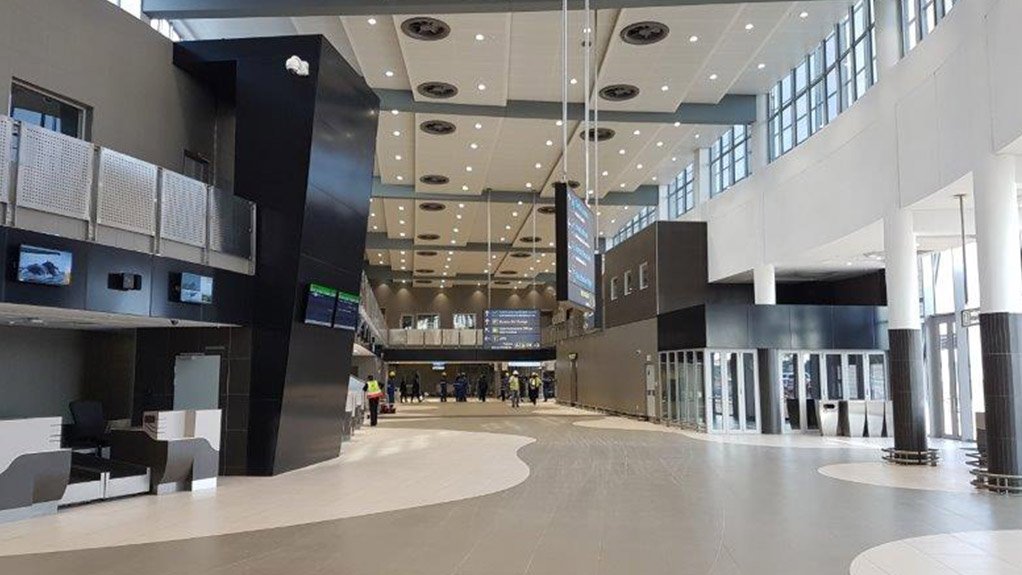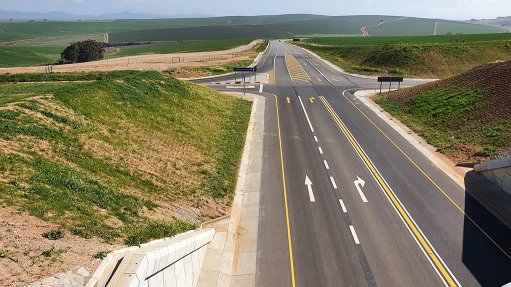AECOM offers architecture as part of its multi-disciplinary offering
This article has been supplied as a media statement and is not written by Creamer Media. It may be available only for a limited time on this website.
Well-known as an integrated infrastructure delivery company in Africa, AECOM also offers architectural services, which is rapidly gaining traction on the continent, especially in East Africa. What differentiates AECOM from traditional architectural and design practices is that it is able to offer a complete solution, from design to project management.
While the trend in Africa is still for single-discipline appointments, such as separate structural and mechanical engineers, AECOM is setting a new benchmark with its multi-disciplinary approach. “What we offer is a game-changer as we are literally a one-stop shop. In addition, we can draw on the strengths and resources of the global AECOM business, from the Far East to the Middle East and the Americas. This means that we have one of the strongest offerings on the continent,” comments Adriaan Vorster, Architecture Business Line Director for AECOM in Africa.
From the automotive manufacturing industry to data centres and high-end residences, AECOM’s client base is very diverse. “In the past, especially in Southern Africa, we have been very engineering-focused, but we have now decided to expand our architectural service offering,” Vorster asserts. What gives AECOM a leading edge in this regard is not only the breadth and depth of its international expertise and experience, but the fact that it is equally at home in Africa with an ‘on-the-ground’ presence.
“We understand our African markets, and have been represented on the continent through our various legacy companies for almost 50 years. It is a good place to be, and we can definitely add value,” Vorster highlights. This value-add includes AECOM’s expertise in smart buildings, for example, which is one of the latest technology-driven evolutions in both architecture and engineering terms.
“There has been a definite mindshift,” Vorster notes. About ten years ago, the ‘green’ revolution kicked off with the broad adoption of BREEAM (Building Research Establishment Environmental Assessment Method), LEED (Leadership in Energy and Environmental Design), and the Green Star rating, as administered by the Green Building Council of South Africa. “In terms of Green Star, South Africa sees an ever-increasing uptake, with the rest of the continent following suit. While we might not have the same volume as Canada, China, or the US, what we produce is certainly on par.”
The main benefit of smart buildings revolves around connectivity and, ultimately, optimisation. A modern service-driven business needs connectivity to move data seamlessly, and to engage with its environment. A second intangible benefit is that smart buildings essentially create an enabling environment for workers to deliver their best.
This is because factors such as light and temperature levels are highly customisable, as opposed to a 30-to-40-year-old building with a single unintelligent air-conditioning system, which inevitably meant simultaneous hot and cold spots. For landlords, the approach means optimising the use of facilities, building systems and resources, such as water and electricity, due to constant monitoring.
However, the Achilles heel of greater uptake in Africa remains the high cost of data, which acts as the backbone for the systems. “South Africa has one of the highest data rates in the world. In order for a smart building to work as intended, it needs the bandwidth and affordable data in equal measure to act as one of the enablers. This is definitely an economic inhibitor at present,” Vorster points out. Another factor is that the physical infrastructure is lagging the smart building trend itself, such as the installation of fibre-based connectivity. “Only once this backbone is in place, can you start to develop smart buildings and, more importantly, smart cities.”
Smart buildings cannot be seen in isolation. “This is the beginning of an evolutionary process. As smart buildings are connected together, they can drive a smart power grid. Imagine then if you add 20 blocks. Overall power consumption will be reduced dramatically. Smart buildings can interact with each other in terms of peak power loads, releasing battery-stored power to the grid at a premium,” Vorster points out. A fully modern smart building has to adopt a holistic approach in its design, incorporating both ‘green’ design best practice, in addition to technology.
“A ‘green’ building, meaning one that has been designed with sustainability in mind, is not necessarily the same as a ‘smart’ building. In my opinion, smart buildings are the next revolution. They combine technological functionality with environmental concerns,” Vorster stresses. In some instances, older building stock is difficult to retrofit or refurbish, with older healthcare facilities, for example, lack the necessary ceiling voids to run modern networks, air-conditioning, and sensors, as an example.
“What is also happening from a technology point of view is that solar panels have become much more efficient, which makes renewable energy an ideal fit for Africa. Add a level of intelligence to this, such as room sensors to monitor occupancy levels and turn off the lights, and you have a winning recipe,” Vorster adds.
Smart buildings are at the forefront of broader global technological trends such as the Internet of Things (IoT). “While the local architectural and engineering industry has been highly successful at promoting green building, I do not think we are there yet in terms of smart buildings.” However, Vorster adds it is an increasingly important debate that AECOM is eager to encourage.
“We must be part of the global conversation around these issues. We are vocal at work groups and conferences and, as a company, have already had access to this type of technology for years. When the African market matures suitably, we will absolutely be ready for it, with our specialists engaging on the topic at an ever-greater frequency as the South African and African market realigns itself.”
Vorster predicts that a decline in data prices, coupled with the ready availability of bandwidth, will be a crucial enabler. “I think the industry will jump to it then. It makes economic sense not only from the obvious benefits for big business, but in terms of more productive workplaces. Energy is costly at the moment, which means that buildings have to run lean, and be as efficient as possible,” he concludes.
Comments
Announcements
What's On
Subscribe to improve your user experience...
Option 1 (equivalent of R125 a month):
Receive a weekly copy of Creamer Media's Engineering News & Mining Weekly magazine
(print copy for those in South Africa and e-magazine for those outside of South Africa)
Receive daily email newsletters
Access to full search results
Access archive of magazine back copies
Access to Projects in Progress
Access to ONE Research Report of your choice in PDF format
Option 2 (equivalent of R375 a month):
All benefits from Option 1
PLUS
Access to Creamer Media's Research Channel Africa for ALL Research Reports, in PDF format, on various industrial and mining sectors
including Electricity; Water; Energy Transition; Hydrogen; Roads, Rail and Ports; Coal; Gold; Platinum; Battery Metals; etc.
Already a subscriber?
Forgotten your password?
Receive weekly copy of Creamer Media's Engineering News & Mining Weekly magazine (print copy for those in South Africa and e-magazine for those outside of South Africa)
➕
Recieve daily email newsletters
➕
Access to full search results
➕
Access archive of magazine back copies
➕
Access to Projects in Progress
➕
Access to ONE Research Report of your choice in PDF format
RESEARCH CHANNEL AFRICA
R4500 (equivalent of R375 a month)
SUBSCRIBEAll benefits from Option 1
➕
Access to Creamer Media's Research Channel Africa for ALL Research Reports on various industrial and mining sectors, in PDF format, including on:
Electricity
➕
Water
➕
Energy Transition
➕
Hydrogen
➕
Roads, Rail and Ports
➕
Coal
➕
Gold
➕
Platinum
➕
Battery Metals
➕
etc.
Receive all benefits from Option 1 or Option 2 delivered to numerous people at your company
➕
Multiple User names and Passwords for simultaneous log-ins
➕
Intranet integration access to all in your organisation

























